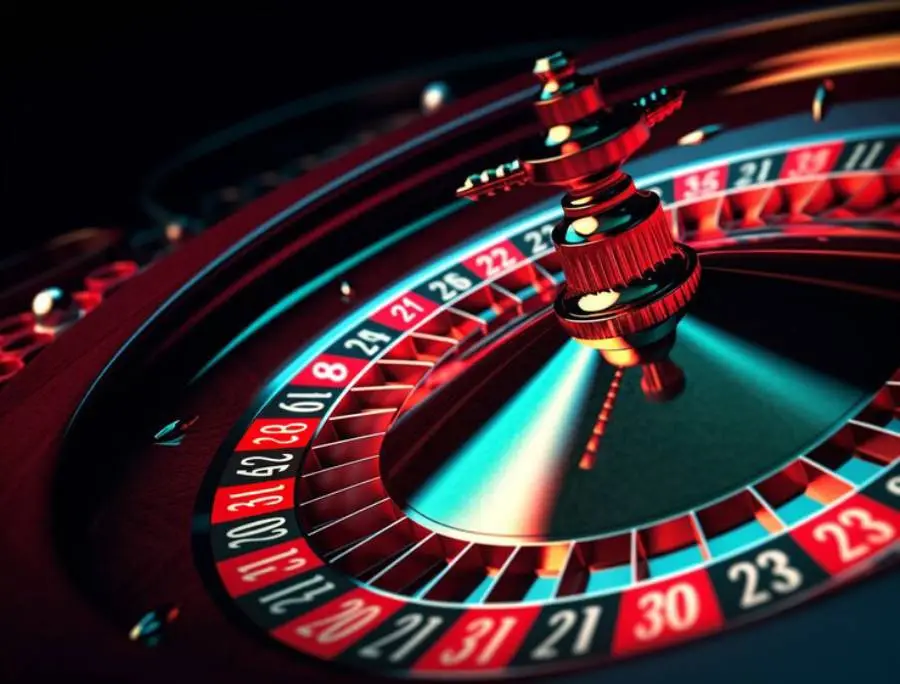The wheel spins tirelessly, zero imperturbably destroys plans, and tactics accumulate like conspiracy theories – elegant, logical and unpredictable. Whether strategies work in roulette is a question that makes theorists and philosophers argue. The former build betting systems, the latter – lose a deposit on the 17th spin. But before you bet money, you need to get an understanding of the essence of each scheme.
Risk classics: Martingale, D’Alembert, Fibonacci
Tactics are an integral part of the history of gambling, time-tested but not without their weaknesses. They appeal to logic and simplicity, creating an illusion of control over chaos. Behind their apparent reliability lie mathematical traps that eventually trigger. Let’s explore how these systems work and where they fail.
Martingale
The system was born in 18th-century France. The algorithm is simple: double the bet after each loss. Do roulette strategies based on this principle work? Partially. Yes, if you have a favorable streak. However, if you have a series of losses, your capital will burn like a paper ship in a furnace.
The mathematical model assumes an infinite bank. However, in online casinos, the betting limit is often limited to €1,000 to €2,000. At the start, 1 € will be required for the seventh loss. At the tenth, 1,024 € will be required. Statistically, a losing series of 11 spins occurs once in 1,024 spins. After ten hours of play, the Martingale will reset the balance.
D’Alembert
The Parisian mathematician Jean Leron D’Alembert proposed a system. Here, the bet increases by a step when losing and decreases when winning. The bet is 10 €, the loss is 20 €, then 30 €, the win is back up to 20 €. Do roulette strategies using such a balance work? Partly. The risk is lower than that of a Martingale, but the payoff is also smeared.
Fibonacci
A numerical sequence where each bet is equal to the sum of the previous two: 1-1-2-3-5-8 and so on. The application is like dancing with a tornado — beautiful, but doomed. There is a chance to win back the pot, but with a long series of losses, the pot disappears like a funnel in the desert.
Big names, quiet chances: Garcia, Cuban, Complet
 Some strategies have been named after their creators and look impressive on paper. They promise a subtle game based on self-control, analytics, or the art of betting management. However, behind these beautiful concepts lies a harsh reality: roulette remains a game of probabilities, not calculations. Let’s explore the strengths and weaknesses of these approaches.
Some strategies have been named after their creators and look impressive on paper. They promise a subtle game based on self-control, analytics, or the art of betting management. However, behind these beautiful concepts lies a harsh reality: roulette remains a game of probabilities, not calculations. Let’s explore the strengths and weaknesses of these approaches.
Garcia
The Spanish approach is based on controlling the pace of the game. The Garcia method suggests fixing the number of spins and stopping the game when the minimum plus is reached. Do strategies in roulette that offer self-discipline instead of a formula work? Efficiency depends on self-control, not on the wheel. It’s not about tactics but about philosophy.
Cube
American Douglas Kuban uses an Excel spreadsheet, records each bet, and analyzes the distribution of outcomes. Systemicity is the foundation of the scheme. However, the wheel does not remember previous spins. Statistics cannot change the 1/37 probability of a zero outcome. Do strategies in roulette work based on past numbers? Only as a tool for analysis, not prediction.
Compliments
A complex system that includes up to 20 chips on a single spin. The basis is made up of the so-called full bets: numbers, their neighbors, corners. Complete requires perfect knowledge of the table. Do strategies in roulette of this level of complexity work? The effect is more from the spectacle than from the benefit. Loss when zero falls is the norm, not an exception.
Conditionally win-win schemes
These approaches look safer than the classic ones, but in practice, they only work in certain scenarios. They do not promise a constant win, but rather help you build a betting structure and keep your emotions under control. Despite their catchy names, their effectiveness is limited by the framework of probability. Let’s analyze each of them and see what their real potential is.
Anti-martingale
The opposite method: the bet increases after a win and decreases after a loss. Do strategies work in roulette, where success builds momentum? Yes, over a short distance. However, in an unfavorable series, the effect is minimal. This method is suitable for controlling emotions rather than winning.
The snake
The scheme covers 12 numbers arranged diagonally: 1-5-9-12-14-16-19-23-27-30-32-34. The bet is one chip per number. The chance of winning is 32.4%. The payout is 35 to 1. If you win, your bet pays off and you make a profit. Do snake strategies work in roulette? You can make a profit during a short session. On the long side, the odds are balanced.
The Lucky Seven
The player chooses 7 favorite numbers and bets on them in each round. The chance is about 18.9%. Inside the tactics, there is only psychology and superstition. Do strategies work in roulette, where intuition is the foundation? Statistics are against it. However, the placebo effect should not be underestimated: confidence reduces impulsive decisions.
Do Roulette Strategies Work: A Comparison by Criteria
The effectiveness of methods can only be understood through a systematic analysis. Each scheme has its own mechanics, risk level, and behavioral load. A brief overview allows you to assess the strengths and weaknesses of popular approaches.
Comparison of the effectiveness of popular systems:
- Martingale: high risk, quick loss of the bank in a series of losses, limited by limits.
- D’Alembert: moderate risk, moderate increase in bets, ineffective in frequent losses.
- Fibonacci: gradual increase in bets, requires a long series of wins for profit.
- Anti-Martingale: low risk, depends on luck, weak protection against losses.
- Snake: coverage of a large range, high probability of winning, moderate profitability.
- Complete: difficult to execute, high stakes, and big wins.
- Garcia: relies on limits and discipline, suitable for minimizing losses.
- Cuban: requires analytical skills, does not affect the odds.
- Lucky Seven: low math, high emotion.
None of the systems provides a real advantage over casinos, but each can be useful for a specific purpose. Whether it’s bankroll management, the pace of the game, or psychological comfort. The main thing is to understand the limits of possibilities and not confuse tactics with a guarantee of winning.
Is it possible to beat the casino at roulette?
Do strategies in roulette work against the very nature of chance? The wheel creates equal conditions with each spin. Online casinos implement random number generators, ensuring the unpredictability of the outcome. The zero nullifies the advantages of betting on odd/even and red/black. Every tactic loses its power in the face of the mathematical expectation: -2.7% on the European wheel.
Roulette systems often promise an advantage, but statistics are the impartial arbiter. No scheme can circumvent the inherent advantage of the establishment. Working methods can extend the session, but they cannot change the probabilities.
Do Roulette Strategies Work: Conclusions
 Do strategies work in roulette? Only partially. They help to manage the pace of the game, control emotions and limit losses. But they do not affect the mathematical nature of roulette itself. Neither Martingale, nor Snake, nor Lucky Seven do not cancel the casino’s advantage and do not guarantee profit.
Do strategies work in roulette? Only partially. They help to manage the pace of the game, control emotions and limit losses. But they do not affect the mathematical nature of roulette itself. Neither Martingale, nor Snake, nor Lucky Seven do not cancel the casino’s advantage and do not guarantee profit.
Strategies do not give an advantage, but help to avoid chaos. Roulette is a game of probabilities, where a sound approach is more important than superstitions.
 en
en  de
de  ar
ar  es
es  hi
hi  fr
fr  nl
nl  it
it  pt
pt  el
el 









